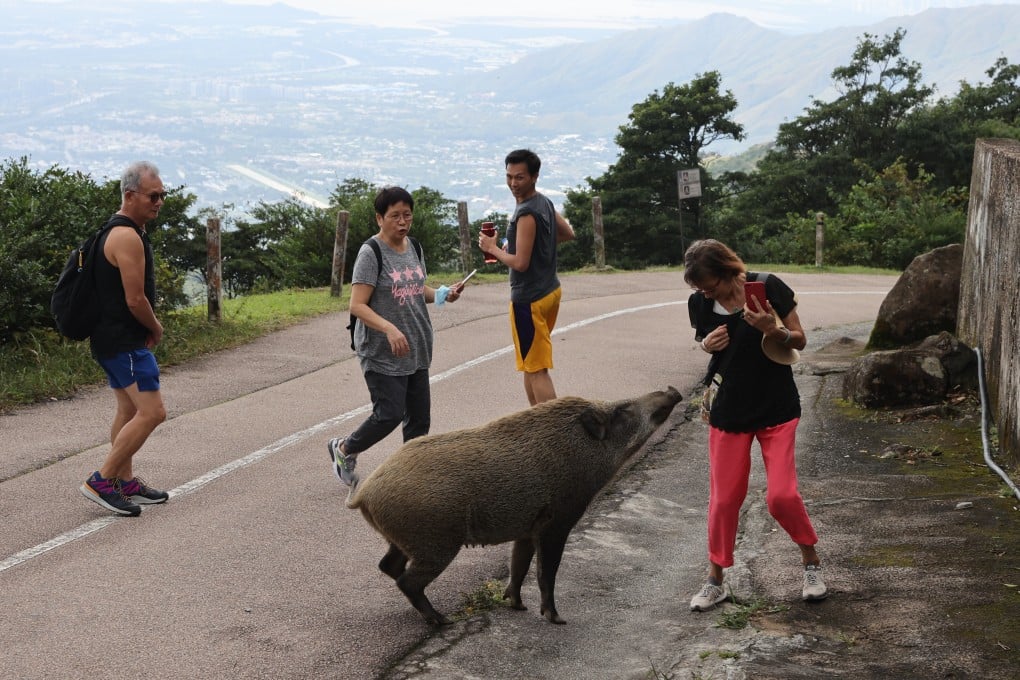Those who feed wild boars could face harsher penalties, Hong Kong leader warns
- Carrie Lam defends culling boars entering urban areas following criticism of policy shift from animal rights groups
- Wildlife authorities announced last week they would capture, euthanise boars found in built-up parts of the city, just days after wild pig attacked police officer

Chief Executive Carrie Lam Cheng Yuet-ngor said wildlife authorities could not ignore the increased risk to Hongkongers from wild pigs venturing into populated parts of the city in greater numbers, with about 30 cases of boar attacks reported over the past few years.
“As a responsible government, we need to take action,” Lam told her weekly press briefing on Tuesday.
“Public safety comes first. I understand that many in Hong Kong love wild animals, nature, wetlands and ponds. But ultimately, our society has to ensure the safety of residents.”
Lam noted some people would even feed the boars on a regular basis, a habit causing them to flock to built-up areas.
She stressed the government discouraged such acts and warned: “We will not refrain from considering raising the penalties so people will not feed these wild animals.”